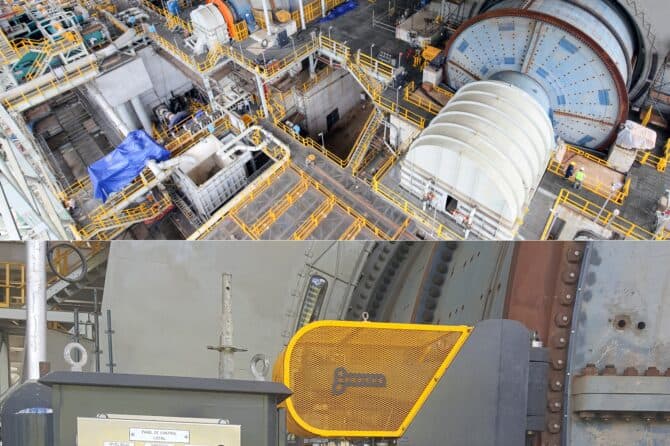
Understanding SAG Mill Brake Systems: An Exploration of Hydraulic Brake Systems and Inching Mode
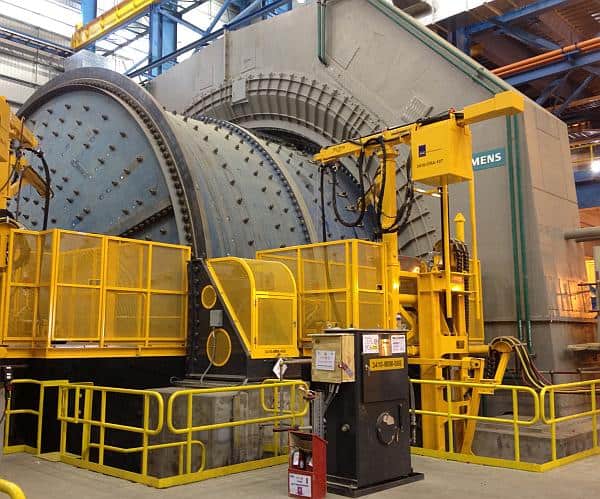
Grinding Mill fitted with Johnson TL800 Series Industrial Disc Brake System
Understanding SAG Mill Brake Systems can be complex. In the vast arena of mineral processing and heavy industrial applications, the primary Semi-Autogenous Grinding (SAG) mill and secondary counter part the Ball Mill, stand out as paramount components. The SAG mill is for processing larger ore fragments and the Ball Mill is for finer pieces.
A SAG mill will have a larger diameter but a shorter overall length, whereas a ball mill will have a smaller diameter and longer overall length. For both SAG and Ball mills, an efficient brake system to control and halt their massive rotating mass is essential. In this article, we will delve into the intricacies of SAG and Ball mill brake systems, focusing particularly on the hydraulic systems, inching mode, and the superiority of Johnson Industries brakes.
-
Why Do SAG Mills Need Braking?
Given the enormous kinetic energy associated with SAG mills—often weighing thousands of tons and rotating at significant speeds—a reliable braking system is indispensable.
Braking systems:
- Ensure the safety of mill operators and maintenance personnel.
- Provide controlled stoppage for maintenance or in emergency situations.
- Allow for accurate positioning of the mill for liner changes and other routine maintenance tasks.
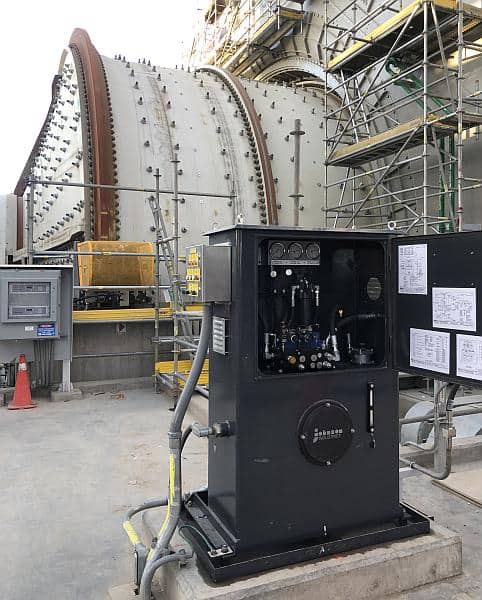
Johnson Industries Hydraulic System for SAG Mill Brake System Control
-
Hydraulic Systems: The Heart of Braking
The most common braking systems in SAG mills are hydraulic. A hydraulic brake system translates the hydraulic pressure into a mechanical release force for normal operation and springs take over during a stoppage of the mill.
These systems are renowned for:
- Delivering consistent, high-force braking.
- Offering a swift response time.
- Ensuring reliability and low maintenance.
-
Inching Mode: Precision at Its Best
Inching mode refers to the controlled slow rotation of the SAG mill.
This mode:
- Enables precise mill positioning.
- Facilitates tasks like liner changes, inspections, or any requirement to align the mill in a particular position.
- VFD on the motor rotates the mill to a particular location and the brakes are engaged.
- Common practice for additional safety is to rotate the mill until the charge is balanced.
- Safety is increased as the mill cannot move once the brakes are engaged.
-
Horsepower and Flange Diameter
The range of power for mills; a SAG mill can have from 32,000 horsepower [23.8MW] to 47,000 horsepower [ 35MW ]. This staggering amount of power underscores the importance of an efficient brake system.
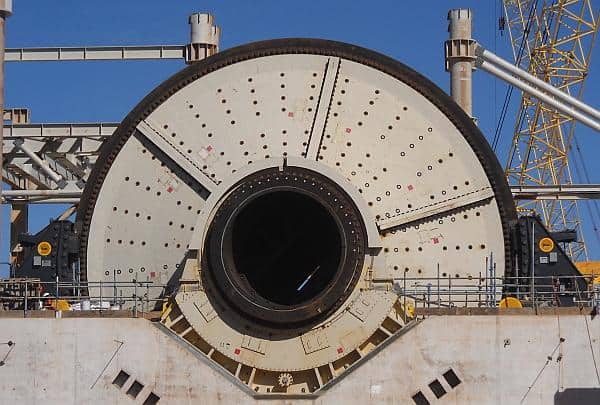
SAG Mill showing Johnson Industrial Brakes
Moreover, the diameters of the flanges (essentially the disc diameters) used in braking systems are from 32’ feet [9.75m] to 44’ feet [13.4m] depending on the mill size. The flange size in conjunction with the brake clamping force play a pivotal role in ensuring that the braking torque is adequate.
-
Johnson Industries Brakes: A Class Apart
Johnson Industries has discerned the inefficiencies of using multiple smaller brakes. Instead, they advocate for single, larger brakes. Their rationale includes:
- Reduced Maintenance: Fewer components mean fewer potential points of failure and reduced maintenance overhead.
- Increased Reliability: By minimizing the number of components, the likelihood of unexpected downtimes is considerably reduced.
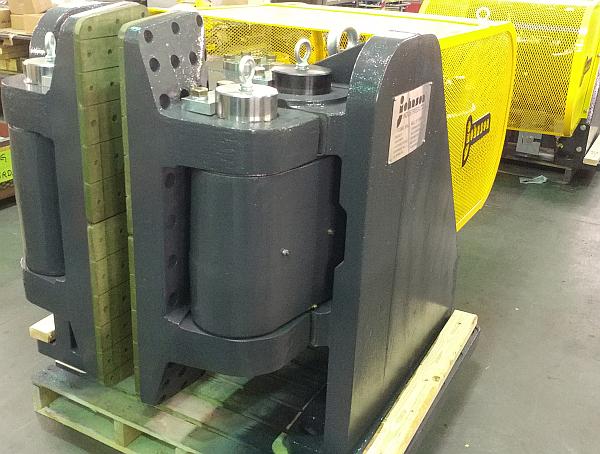
TL800 Caliper Disc Brake at the Johnson Industries Factory in Vancouver BC Canada
In conclusion, the brake system of a SAG mill is not just an auxiliary component but an essential feature ensuring efficiency, safety, and longevity. With industry leaders like Johnson Industries paving the way with innovative braking solutions, we can expect even more streamlined and efficient operations in the future. Call us today to contribute our expertise to the best solution for your Grinding Mill application!
#miningequipment #miningindustry #miningtech #heavymachinery #mineralprocessing
Leave a reply